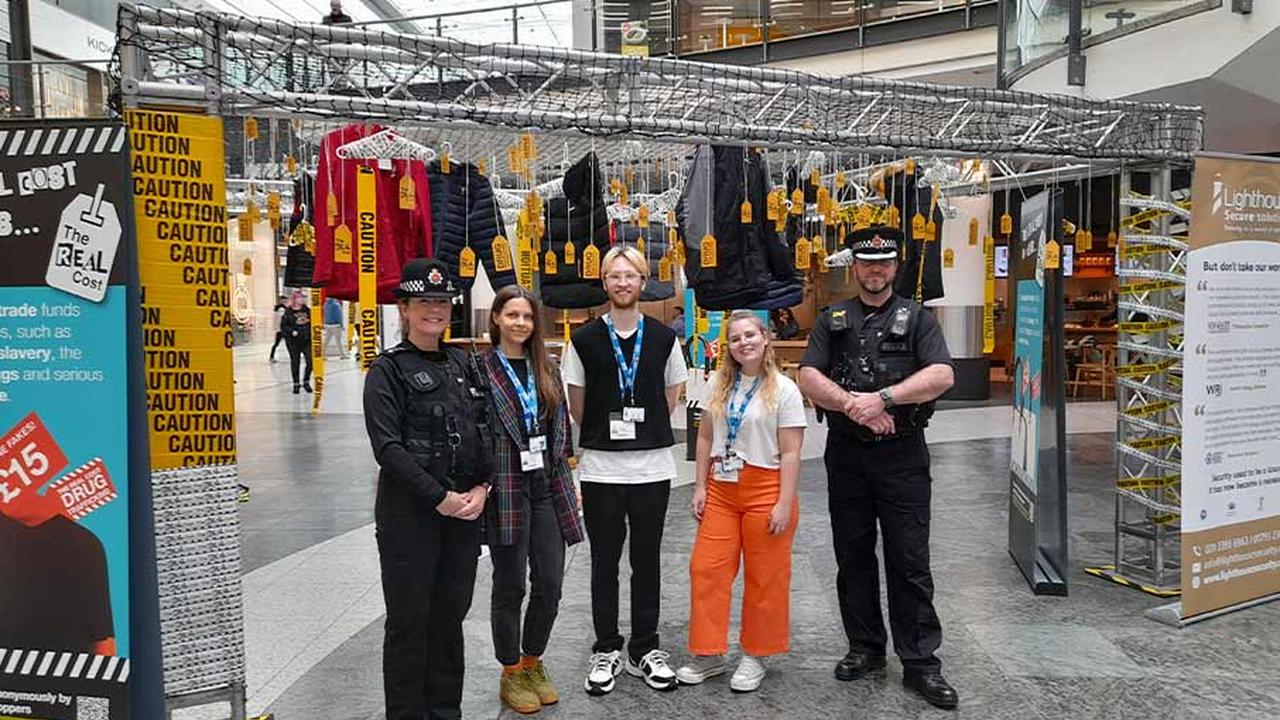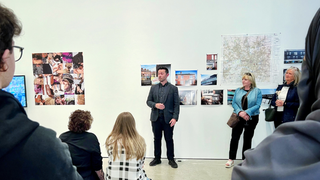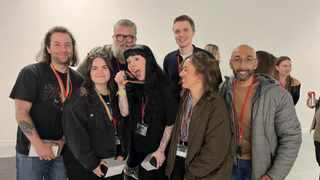Students Help IPO Crack Down on Counterfeit Goods Market

Students from UCEN Manchester have delivered an impassioned plea to the public to say no to illegal counterfeit goods, offered for sale elsewhere in the city and online.
The final year BA (Hons) Creative Media and Visual Communication students have highlighted how the illegal trade in fakes puts legitimate traders’ livelihoods - and the students’ future prospects - at risk, as they highlighted to shoppers the ‘real cost’ of fakes and appealed to them to help support Manchester’s world class design industry.
The students created copy for content and a call to action, organised their own photoshoot using garments that were seized during recent raids, and put together a series of design proposals to work across both print and digital platforms.
Using eye-catching displays and materials such as repurposed fake goods and video content, the students created a public-facing, guerrilla campaign and stand to display at Manchester’s Arndale shopping centre. They were accompanied by representatives of Greater Manchester Police, Manchester City Council and the UK Intellectual Property Office, who have joined forces with the students on a mission to help educate consumers about the real harms fake goods cause and empower them to make informed choices.
Alexandra Jackson, Lead Tutor, said:
This project is community-focused, giving our learners the opportunity to work alongside real people and to tackle real-world problems and local issues by developing thought-provoking campaigns that create awareness and change perceptions in order to enhance every day social living.
Thanks to the unique partnership with the UK Intellectual Property Office, our students have been given the chance to work on a high-profile awareness campaign that could have a huge impact on the counterfeit goods market in Manchester.
Their project highlights the impact this trade has on society and all those that that suffer as a result, while celebrating Manchester’s vast array of fashion, high street and independent stores.
The students shared their creative ideas and explained how their research has highlighted many misconceptions about the counterfeit goods trade in Manchester – notably, that it’s a victimless crime.
By shining a spotlight on the real cost of fakes, the aspiring designers appealed to the public to ‘wear real’ and say a resounding ‘no’ to this harmful trade.
Michael Walsh, Dean UCEN Manchester, commented:
Opportunities to work hand-in-hand with organisations on professional briefs are a key part of what makes UCEN Manchester different and provide our students with the chance to develop their portfolios alongside their studies so that they are ready to hit the ground running when they start their careers.
“We are proud that our students have developed a compelling and professional campaign in partnership with the IPO which will help raise awareness of this important issue and start to change people’s attitudes to counterfeit goods, making a positive impact to the Greater Manchester community.”
Catherine Davies, Senior Campaigns Manager at the UK Intellectual Property Office said: “The Intellectual Property Office has been delighted to partner with UCEN Manchester and their talented students to help raise consumer awareness about the harms of counterfeit goods. The campaign has given the students a golden opportunity to work on a live brief, as part of the collaborative work between The Manchester College, UCEN Manchester and other partners to help tackle this issue in the Manchester area and support the city’s innovative and creative industries.
“As these aspiring designers enter the job market, this opportunity will give them an invaluable lifelong understanding of how to protect and make the most of the IP - the collective term for patents, trade marks, copyright and designs - in their creations, and how to use the IP of others legitimately.”
The illegal trade in counterfeits, alongside piracy, costs the UK economy billions of pounds and has been estimated to be responsible for over 80,000 job losses each year. Such goods are often dangerous and defective, produced with minimal regard for those purchasing them, or those workers exploited in their production.
Cllr Luthfur Rahman, Deputy Leader of Manchester City Council, said: “Counterfeiting isn't a victimless crime. Apart from fuelling wider criminal enterprises that wreak havoc in our communities, the products that are being offered to our residents by unscrupulous counterfeit shops are more often than not very poor quality and, in many cases, they do not meet the safety standards of the legitimate products.
“However attractive an offer might be, we urge you to not put yourself and loved ones at risk - say no to fakes.”

